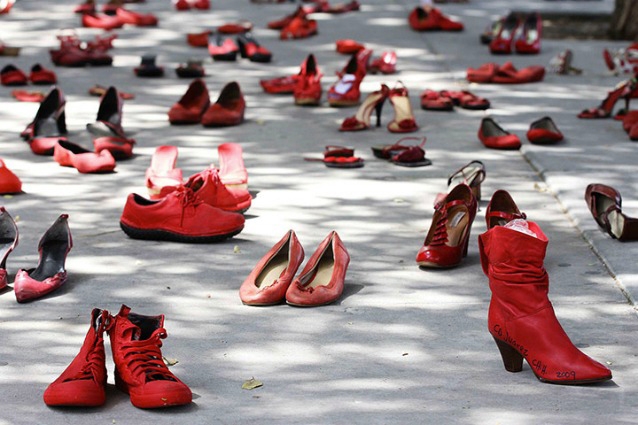The
World's Women 2010 report shows that over the last decade in most countries,
the availability of gender statistics on population, employment and
parliamentary representation increased. Data quality varies from country to
country, deficiencies are often found in data on maternal mortality, causes of
death, professional education, access and use information and communication
technologies, the informal sector and informal employment.
The
United Nations issued a report "Women in the world 2010: Trends and Statistics”,
a unique compendium of the last data record advancement of women around the
world in eight key areas: family and population, health, education, work, power
and decision making, environment and poverty.
When
it comes to family and population, worldwidely, the number of men is about 57
million higher than the number of women. In 2010, some regions have recorded a
"deficit" significant men, while other women. In general, in Europe
there are many more women than men. In contrast, some of the most populated
countries have a "deficit" of women. China has a ratio of 108 males
to 100 females, in India 107, in Pakistan 106 and in Bangladesh 102.
In
the education field, globally, the percentage of girls registered in primary
school increased from 79% to 86% in the period 1999-2007. But West and Central
Africa recorded some of the lowest rates, with less than 60%. At the beginning
of the new millennium, about 105 million boys and girls around the world were
not enrolled in school. This number decreased to 72 million in 2007,
representing a decrease of 31%. Girls account for 54% of the percentage of
children enrolled in primary school, down from 58% in 1999. The highest
percentage of girls not listed the school was registered in the Arab States,
being 61%. If high school enrollment, male domination has been reduced global
scale, tipping the balance in favor of women, with the exception of sub-Saharan
Africa and South and West Asia.
In
terms of employment, women aged between 25 and 54 years have a higher labor
force participation than in 1990. Women's wages represent between 70% and 90%
of their male counterparts salaries. Self-employment and family business
contribution prevails in Africa and Asia, especially among women. These workers
suffer from job insecurity or lack of safety measures in it. Women are still
rarely employed in jobs with high status, power and authority in the
traditional or occupied by men. Motherhood is still a source of discrimination
in the workplace. Despite legislation in the field, many pregnant women lose
their jobs and redundancies are therefore often claimed in court.
As
for power and decision making, positions
of head of state or government remains difficult to obtain for women. In only
23 countries of the world women are a critical proportion - 30% - in one of the
chambers of the national Parliament. Of the top 500 largest corporations in the
world, only 13 are headed by a woman.
Regarding
the environmental domain, women in rural areas of sub-Saharan Africa have
usually to deal with water supply. A round trip from the water source lasts an
hour and 22 minutes in rural areas of Somalia and one hour and 11 minutes in
rural areas of Mauritania. Most households in sub-Saharan Africa and South and
Southeast Asia using solid fuels for cooking or traditional stoves without
chimney or hood, which disproportionately affects women's health.
Finally,
looking at poverty, families whose headed by single mothers are more likely to
reach poorer than just dealing father. Existing laws limit women's access to
ownership of land or other property in most countries in Africa and in almost
half of the countries in Asia. Elements of gender inequality inheritance rights
were identified in 45 of the 48 African countries studied in 25 of the 42 Asian
countries.
The
report also shows that despite the progress achieved on gender equality in
national parliaments, the average representation of women remains at 10% in
North Africa, 14% in East Asia and 9% in the West, meanwhile in Oceania is reaching
only 3%. The report highlights that women's representation in parliament has
increased due to gender quotas. Eighteen of the twenty-three countries where
the average representativeness recorded more than 30% have applied a model of
gender quotas in national parliaments. The year 2009 showed that the percentage
of female parliamentarians was an average of 21% in countries that have
introduced gender quotas, while in countries where such measures were not taken
proportion was only 13%.
http://www.unwomen.org/
http://datatopics.worldbank.org/gender/
http://unstats.un.org/unsd/demographic/products/Worldswomen/WWreports.htm


